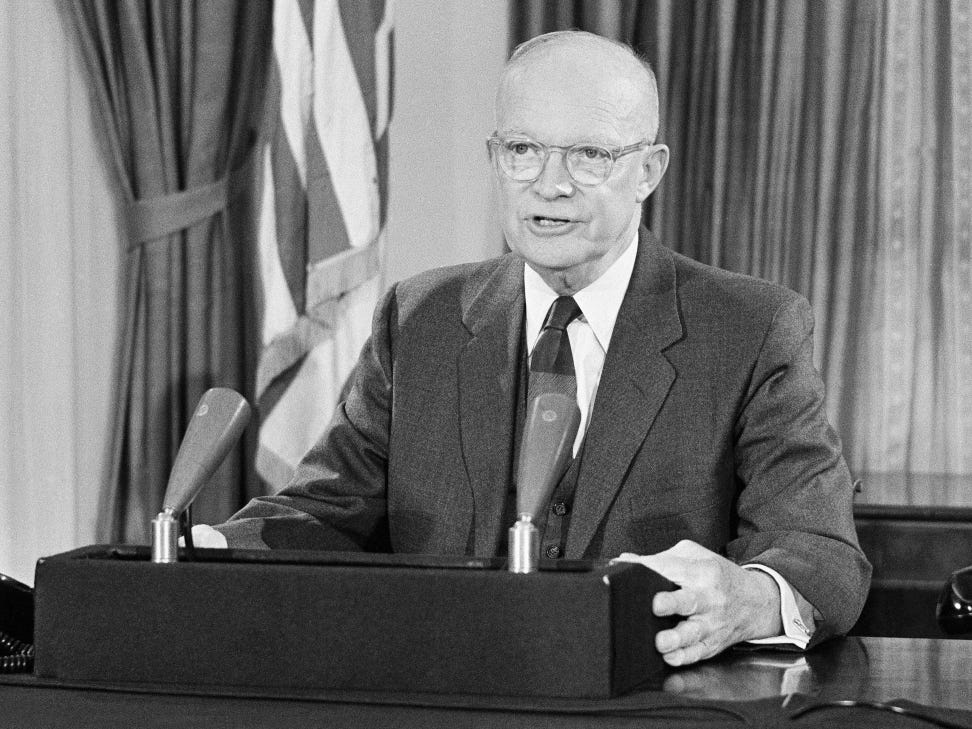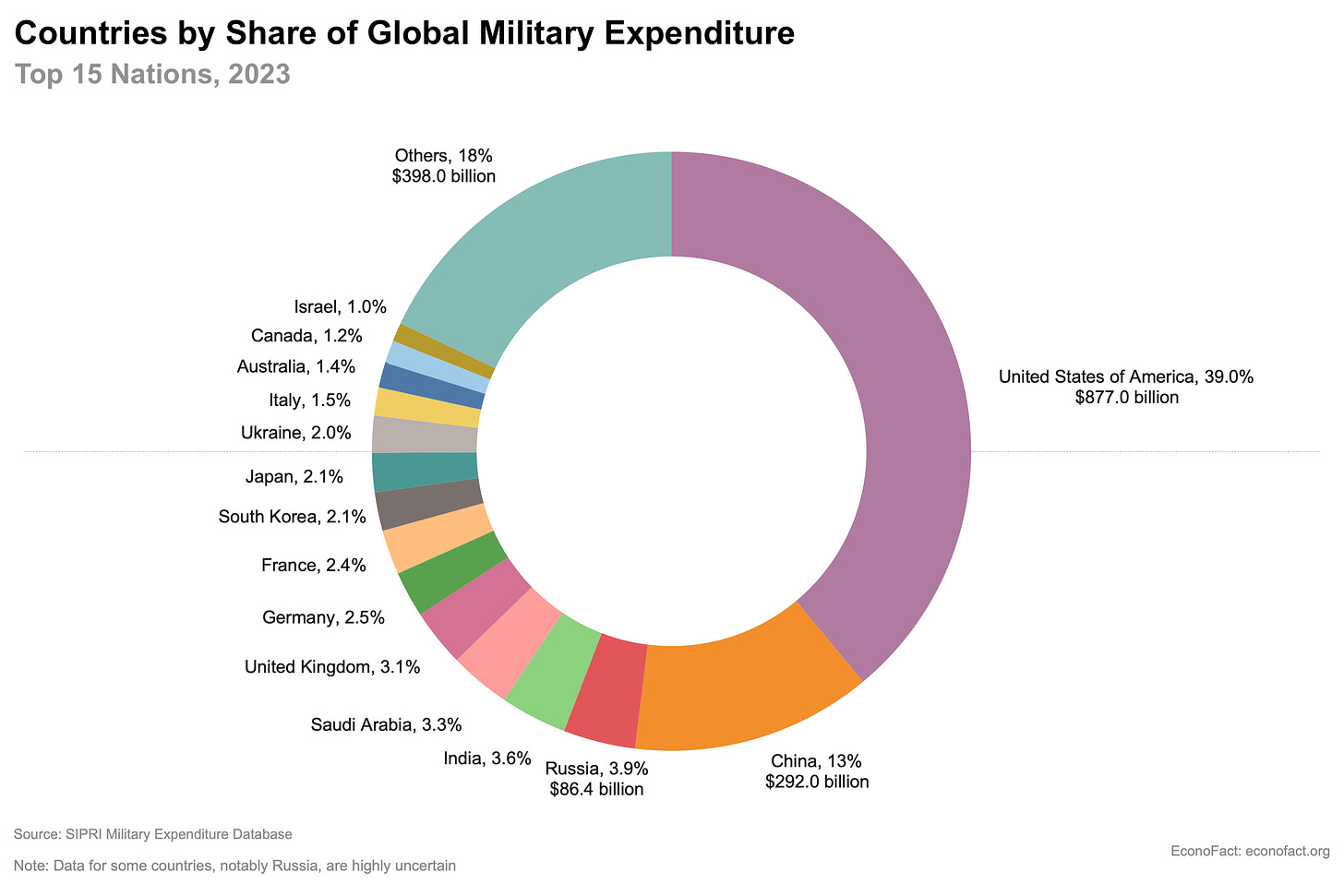The "Forever War" must end
Millennials will soon be in a prime position to end the United States' enduring policy of continual military conflict. Here's three steps we should take to do so.
This post is longer than normal. I nevertheless encourage a full read.
As the warhawk dream of conflict with Iran becomes increasingly likely with Israel's year-long war in Gaza spilling over into Lebanon, and the war in Ukraine raging as ferocious as ever, it is worth reflecting on the tremendous responsibility Millennials have to future generation.
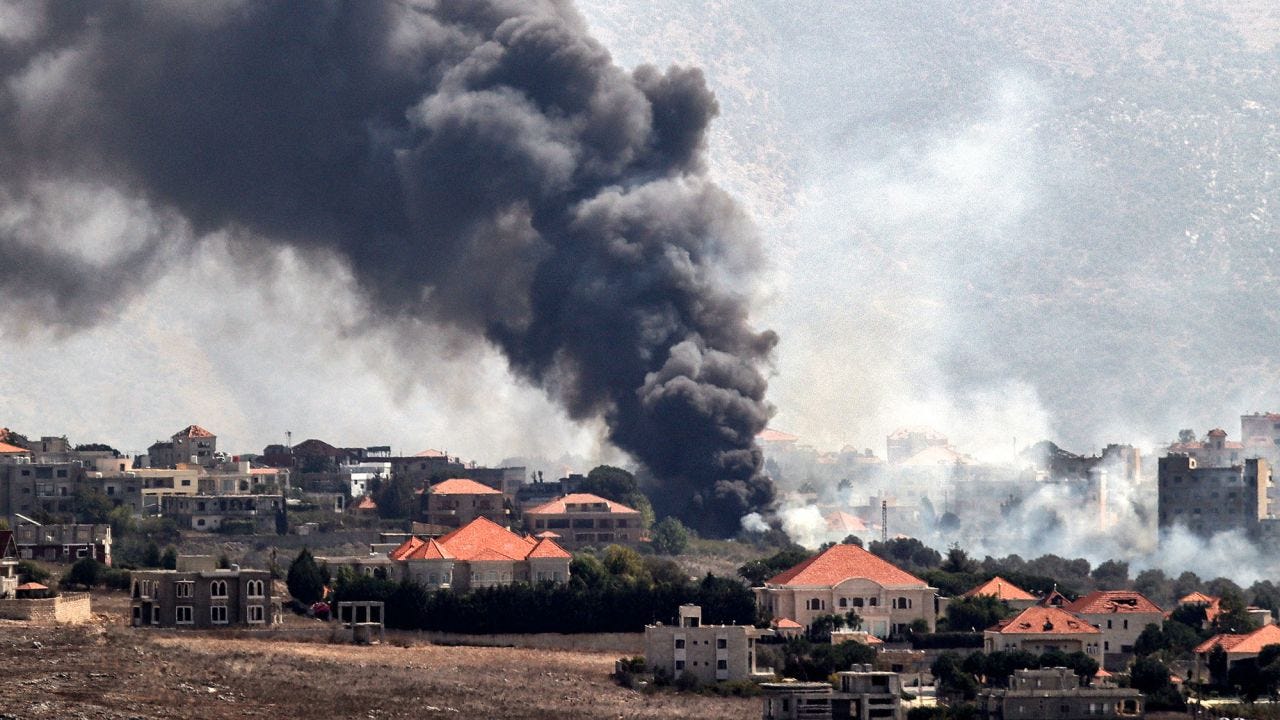
Millennials are rapidly filling the halls of power. As we come to manage the myriad questions of public policy, there is one that must be answered for the sake of not only our younger siblings in Generation Z (Zoomers) and our children in Generation Alpha (GenAlpha), but for those in every corner of the globe:
Is the Forever War the permanent inheritance of American generations to come? Or do we have the courage to slay Eisenhower’s leviathan and dismantle the military-industrial complex?
The Record for Zoomers and GenAlpha
Millennials grew up in a time where America at least pretended it wasn’t at war. Even with Bush the Senior’s short-term crusade in Kuwait and Clinton with NATO’s affairs in the Yugoslav Wars, there were limitations. Intervention had parameters, peace was constantly negotiated, and international efforts focused on preventing the worst of atrocities. For at least a few years, Americans could be satisfied they weren’t “really” at war.
For the Zoomers and GenAlpha, the notion of peacetime has never even been a fantasy. They have only ever known war. Since most of them were born, the United States has:
Provided diplomatic coverage and military aid to Israel (1948-present)
Invaded and occupied Afghanistan (2001-2021)
Invaded and occupied Iraq (2003-2011)
Intervened in a regime-change in Libya (2011)
Given aid to Saudi Arabia in its intervention in the Yemeni Civil War (2015-present)

Waged a proxy war with Russia through the financing and arms-supply of Ukrainian forces (2022-present)
Conducted drone strikes in (at least) Yemen, Somalia, Syria, Libya, Pakistan (most recently known strike in 2024)
Continued its unending fight against ill-defined terrorism and the international drug war from the Sahara to Latin America to the Philippines and elsewhere
That there seems to be no end in sight to the continual perpetuation of global violent conflicts is why Millennials often call the status quo the “Forever War.” The term today captures the generational zeitgeist that not only are these countless conflicts always ongoing, but that they are also not so separate as they might seem on the surface.
Eisenhower Was Clearly Correct
I’m not saying there is some sinister cabal organizing wars for some nefarious plot, or that all wars are causally connected. I am saying that Dwight D. Eisenhower was right in his final days as president when he warned that if Americans do not curtail the crony entrenchment of military, Congressional, and corporate relations, then we are doomed to suffer under the liberty-reducing and societally-exhausting yolk of a culture, economy, and politics dependent upon continual military conflict.
His prophetic warning effectively presented Americans with two choices: We can either become a nation of peace through defensive strength and economic cooperation, or we can become the most destructive war tribe ever witnessed in history.
Thirst for Peace
I believe Millennials across the political compass are tired of the Forever War and are ready to chart a path forward for the next generations to inherit something approximating peacetime. In 2015 (when the Islamic State was the threat of the day), CATO discovered half of Millennials supported keeping out of world affairs. The Chicago Council on Global Affairs’ more recent report shows that that majority has remained steady and added Zoomers to the mix, with a particular emphasis on deemphasizing military-based solutions. The appetite for peacetime and to end the Forever War is strong. The trick, of course, is how.
There are three elements that Millennials must embrace to begin the process of ending the Forever War.
First, we must acknowledge the United States’ role in fomenting the Forever War.
The US budget for warmaking is greater than the next nine countries combined. At 53% of federal discretionary spending, we have purchased the first, second, and fourth largest air forces in the world through our Air Force, Army, and Navy. A Navy, by the way, with a whopping 11 aircraft carriers. Such air and sea power ensures that we have a global presence — we can’t help but be involved in the world’s military affairs.
Additionally, the top five military contractors in the world are all based in the US, making weapon platforms and other technology not only for us but our designated allies. That makes America the world’s biggest arms dealer.
Our entire system is organized around significant economic incentives to maintain a strong war footing. There are thus huge political and cultural entanglements that support an oversized military presence. We not only are prepared for war, but have the toxic combination to encourage it.
Consider the war in Ukraine. It is by our direct involvement in Ukraine that war continues.
The violence there could not be sustained without billions of American debt-financed dollars going into Ukraine’s resistance to Russian aggression. Actually, to be precise, a huge chunk of the money earmarked for Ukraine isn’t actually going to Ukraine. The US is primarily sending older equipment overseas, and then spending the billions to replace our arsenal with newer platforms.
Which means financing Ukraine’s war is now a labor union election issue–more economic and cultural entrenchment for the war machine.
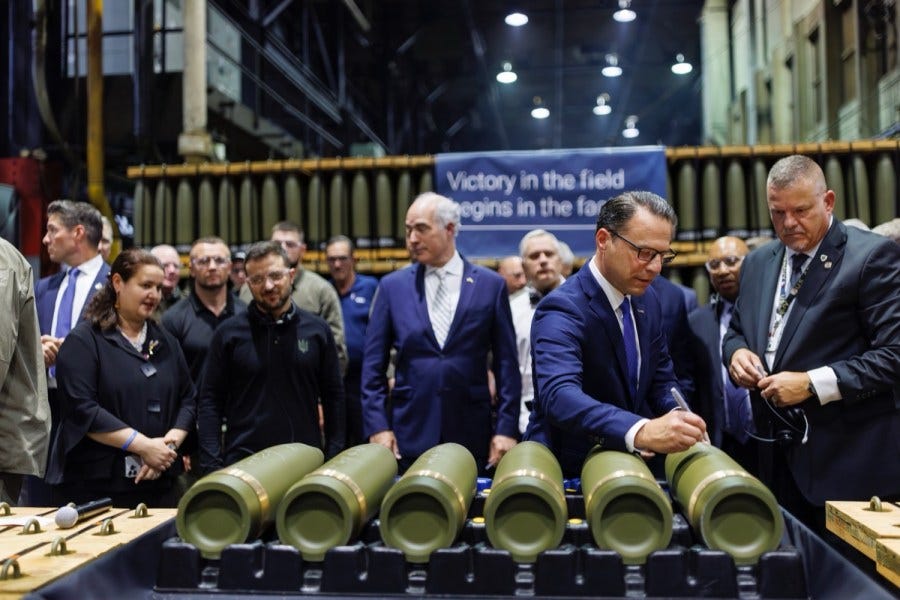
Since Russia is a nuclear power, the US cannot simply marshal its forces like it did for Kuwait against Iraq and kick Putin out in seven months. Our limited but unending involvement inherently creates a war of attrition, something the Russians are infamously good at, even if they are currently humiliated on the battlefield.
The second thing Millennials must do to end the Forever War is dismantle the imperial presidency’s power in foreign and military affairs.
It is true that the military is greater than a single commander-in-chief, and many things might be done without his direct knowledge, control, and sometimes permission. Nevertheless, it is the authority of the office itself that gives legal(ish) legitimacy to the United States’ role in the Forever War. It is this authority that either Congress or the people via convention must rein in.
Congress must revoke all authorized uses of military force, and either renew them on a quarterly basis or let them terminate. As carnage in Gaza has shown, a year is simply too long a venture to not have an actual declaration of war. Any law or provision giving the president near or actual unilateral decision making in wielding force outside our borders must equally be revoked and brought under stricter congressional oversight.
We must also see war as war. Congressional politicians should not be allowed to pass the buck and say, “It isn’t legally a war, just a military operation.” That’s just a convenient lie. Our elected representatives must either take the bold step to declare war officially, or leave the damn thing alone.
Should this fail, a convention of states ought to be called to modify Article II’s language overseeing the president’s military authority. Terms should be defined and clear parameters placed on how, when, and why he may act without explicit congressional authorization.
This is a long-shot, but with Millennials soon to be at the helm of the nation, we could actually see a change.
Finally, to stop the Forever War, Millennials must raise families that do not tolerate bellicosity, warmongering, or war glorification.
I recommend this a bit tongue-in-cheek as Millennials are having children at a significantly reduced rate than our preceding generations. But the point is nevertheless important. If Millennials are serious about doing away with the Forever War, dismantling the military-industrial complex, and crafting a coherent foreign policy of non-intervention and economic cooperation, it must build up the culture. It must foster peace-based ideals and aspirations among the next generations. Any policy Millennials achieve without a complementing social atmosphere is merely a dead letter, ready to be discarded at the next catastrophe.
This is where collaboration with Zoomers (engaging in their first elections) is critical. Zoomers already have an animosity toward American interventionism, at least and especially with American support of Israel.
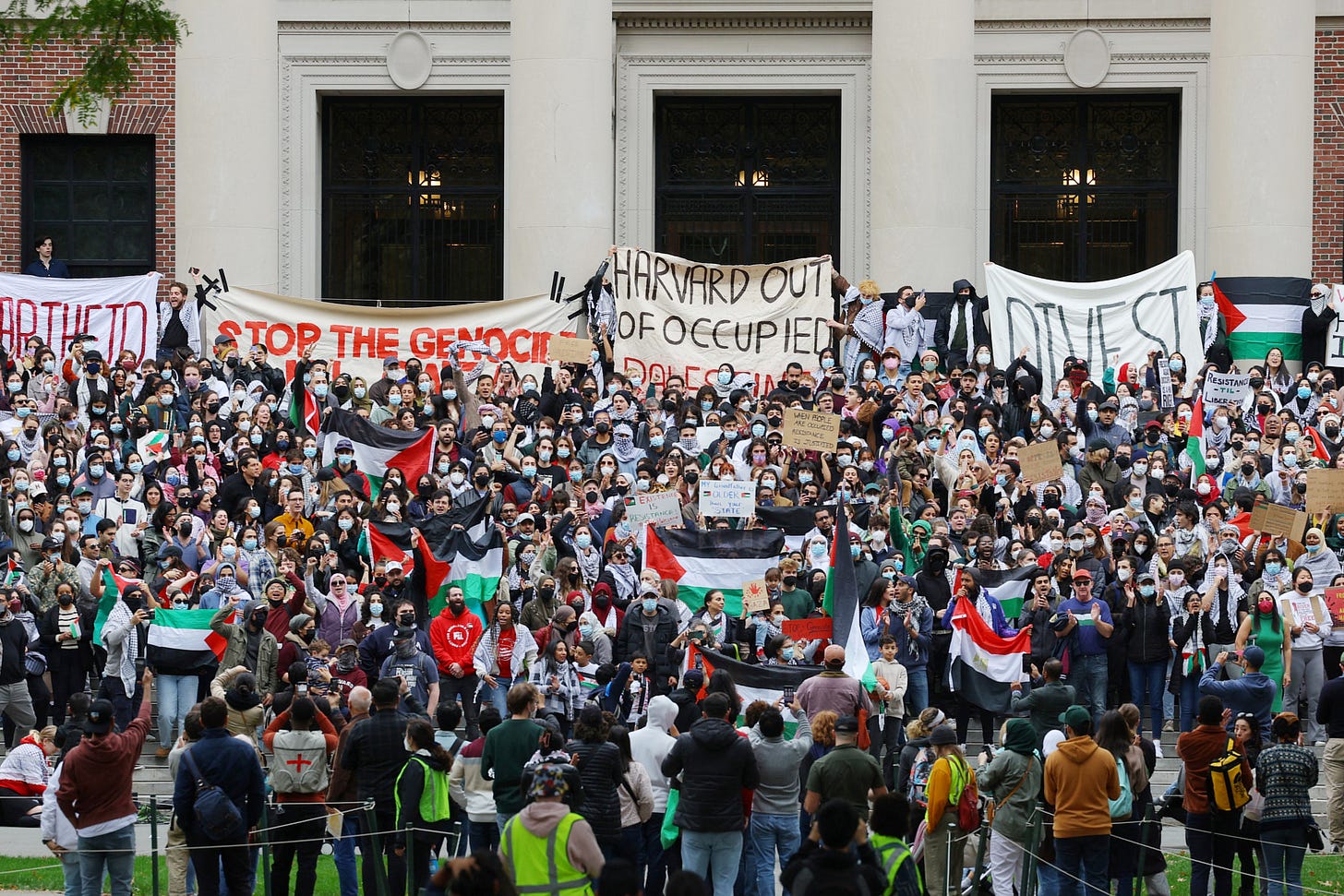
Granted, I think a sizable amount of the Zoomers’ passion against Israel is poorly founded, ignorantly motivated, and horribly manipulated. There are a plethora of legitimate reasons to be upset with how Israel conducts its affairs and how the United States has shielded it from genuine critique. Unfortunately, many Zoomers are sympathizing with grotesque organizations like Hamas and are incited by literal Marxian and anti-Semitic hatred. Some are protesting simply to protest as college students so often do, swayed by charlatan community organizers in need of loud voices.
Nevertheless, Zoomers’ sheer emotional rage against war is what I believe should not be wasted. Guided by the right objectives and mentored by their immediate preceding generation, it may be possible for Millennials to partner with Zoomers to seriously reduce our foreign intervention.
It may start off rocky, with competing interests within a unified camp disagreeing on where to start. But in my years teaching high school, working directly with Zoomers on a daily basis, I know it is possible to bridge the generational and motivational gap. So long as the goal is the same, and the tent is big enough, it should be possible to fuse motivations into actual achievement.
Conclusion
None of this is easy or simple. The Forever War’s causes and supporters are complex and deep-seated. But Millennials have a unique vantage point of knowing what peace could be and what continuing war would mean. They have a vision that appeals to those younger than them and coming into their own power. That perspective and our increasing political base can and should be the rallying point to bring sanity to our foreign policy and make our military might respectable, not merely resented.
The “Forever War” must end.
Do please leave your contributions in the comments. I truly want to hear if my thoughts and arguments hold water, and so on.
Thank you for reading—peace be with you.



